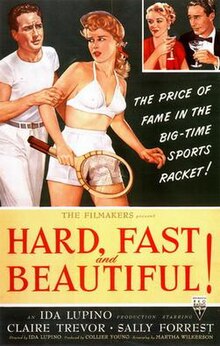
Kings Row is a 1942 film starring Ann Sheridan, Robert Cummings, Ronald Reagan and Betty Field that tells a story of young people growing up in a small American town at the turn of the twentieth century. The picture was directed by Sam Wood. The film was adapted by Casey Robinson from a best-selling 1940 novel of the same name by Henry Bellamann. The musical score was composed by Erich Wolfgang Korngold, and the cinematographer was James Wong Howe. The supporting cast features Charles Coburn, Claude Rains, Judith Anderson and Maria Ouspenskaya.

Ida Lupino was a British actress, director, writer, and producer. Throughout her 48-year career, she appeared in 59 films and directed eight, working primarily in the United States, where she became a citizen in 1948.

Born Yesterday is a 1950 American comedy-drama film directed by George Cukor, based on the 1946 stage play of the same name by Garson Kanin. The screenplay was credited to Albert Mannheimer. According to Kanin's autobiography, Cukor did not like Mannheimer's work, believing it lacked much of the play's value, so he approached Kanin about adapting a screenplay from his own play. Because of legal entanglements, Kanin did not receive screen credit.

Francis Bosley Crowther Jr. was an American journalist, writer, and film critic for The New York Times for 27 years. His work helped shape the careers of many actors, directors and screenwriters, though his reviews, at times, were perceived as unnecessarily mean. Crowther was an advocate of foreign-language films in the 1950s and 1960s, particularly those of Roberto Rossellini, Vittorio De Sica, Ingmar Bergman, and Federico Fellini.

Sally Forrest was an American film, stage and TV actress of the 1940s and 1950s. She studied dance from a young age and shortly out of high school was signed to a contract by Metro-Goldwyn-Mayer.

Private Hell 36 is a 1954 American crime film noir directed by Don Siegel starring Ida Lupino, Steve Cochran, Howard Duff, Dean Jagger and Dorothy Malone.
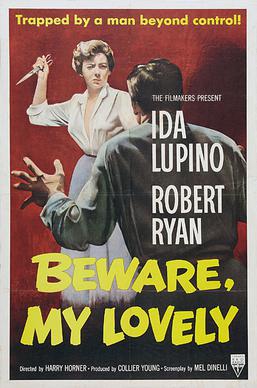
Beware, My Lovely is a 1952 crime film noir directed by Harry Horner starring Ida Lupino, Robert Ryan and Taylor Holmes. The film is based on the 1950 play The Man by Mel Dinelli, who also wrote the screenplay.
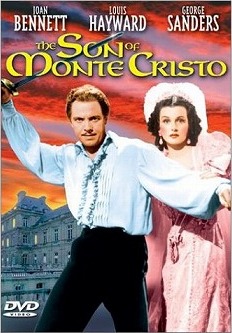
The Son of Monte Cristo is a 1940 American black-and-white swashbuckling adventure film from United Artists, produced by Edward Small, directed by Rowland V. Lee, that stars Louis Hayward, Joan Bennett, and George Sanders. The Small production uses the same sets and many of the same cast and production crew as his previous year's production of The Man in the Iron Mask. Hayward returned to star in Small's The Return of Monte Cristo (1946).

The Man I Love is a 1947 American film noir melodrama directed by Raoul Walsh, based on the novel Night Shift by Maritta M. Wolff, and starring Ida Lupino, Robert Alda and Bruce Bennett. The title is taken from the George and Ira Gershwin song "The Man I Love", which is prominently featured.
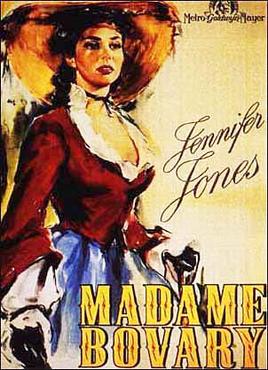
Madame Bovary is a 1949 American romantic drama, a film adaptation of the classic 1857 novel of the same name by Gustave Flaubert. It stars Jennifer Jones, James Mason, Van Heflin, Louis Jourdan, Alf Kjellin, Gene Lockhart, Frank Allenby and Gladys Cooper.
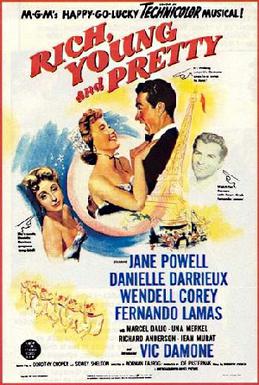
Rich, Young and Pretty is a 1951 American musical comedy film produced by Joe Pasternak for Metro-Goldwyn-Mayer and directed by Norman Taurog. Written by Dorothy Cooper and adapted as a screenplay by Cooper and Sidney Sheldon, it stars Jane Powell, Danielle Darrieux, Wendell Corey, and Fernando Lamas, features The Four Freshmen, and introduces Vic Damone. This was Darrieux's first Hollywood film since The Rage of Paris (1938).
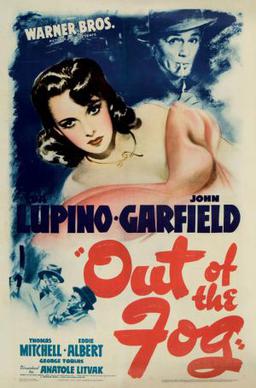
Out of the Fog is a 1941 American film noir crime drama directed by Anatole Litvak, starring John Garfield, Ida Lupino and Thomas Mitchell. The film was based on the play The Gentle People by Irwin Shaw.

Esther and the King is a 1960 American-Italian religious epic film produced and directed by Raoul Walsh and starring Joan Collins as Esther, Richard Egan as Ahasuerus, and Denis O'Dea as Mordecai. Walsh and Michael Elkins wrote the screenplay, which was based on the Book of Esther of the Hebrew Bible and the Old Testament. It recounts the origin of the Jewish celebration of Purim.
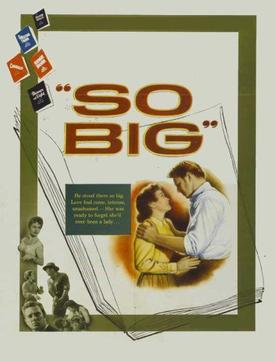
So Big is a 1953 American Drama Western film directed by Robert Wise and starring Jane Wyman, Sterling Hayden and Nancy Olson.

Our Very Own is a 1950 American drama film directed by David Miller. The screenplay by F. Hugh Herbert focuses on a teenage girl who learns she was adopted as an infant. Ann Blyth, Farley Granger, and Jane Wyatt star in the film.

The Second Time Around is a 1961 American CinemaScope Comedy Western film starring Debbie Reynolds as a widow who relocates her family from 1911 or 1912 New York to the Arizona Territory. It is based on the novel Star in the West by Richard Emery Roberts.

The Long Dark Hall is a 1951 British mystery, suspense, courtroom-drama, crime film directed by Reginald Beck and Anthony Bushell and starring Rex Harrison, Lilli Palmer and Raymond Huntley. It was based on the 1947 novel A Case to Answer by Edgar Lustgarten. It was made at Walton Studios.

The Naked Street is a 1955 American crime film noir directed by Maxwell Shane. The drama features Farley Granger, Anthony Quinn and Anne Bancroft.
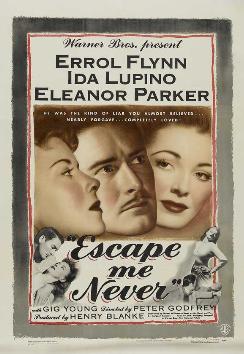
Escape Me Never is a 1947 American melodrama film directed by Peter Godfrey and starring Errol Flynn, Ida Lupino, Eleanor Parker, and Gig Young.
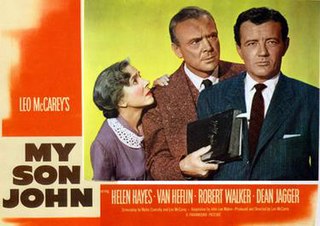
My Son John is a 1952 American political drama film directed by Leo McCarey and starring Helen Hayes, Van Heflin, Robert Walker and Dean Jagger. Walker plays the title character, a middle-class college graduate whom his parents suspect may be a communist spy.
